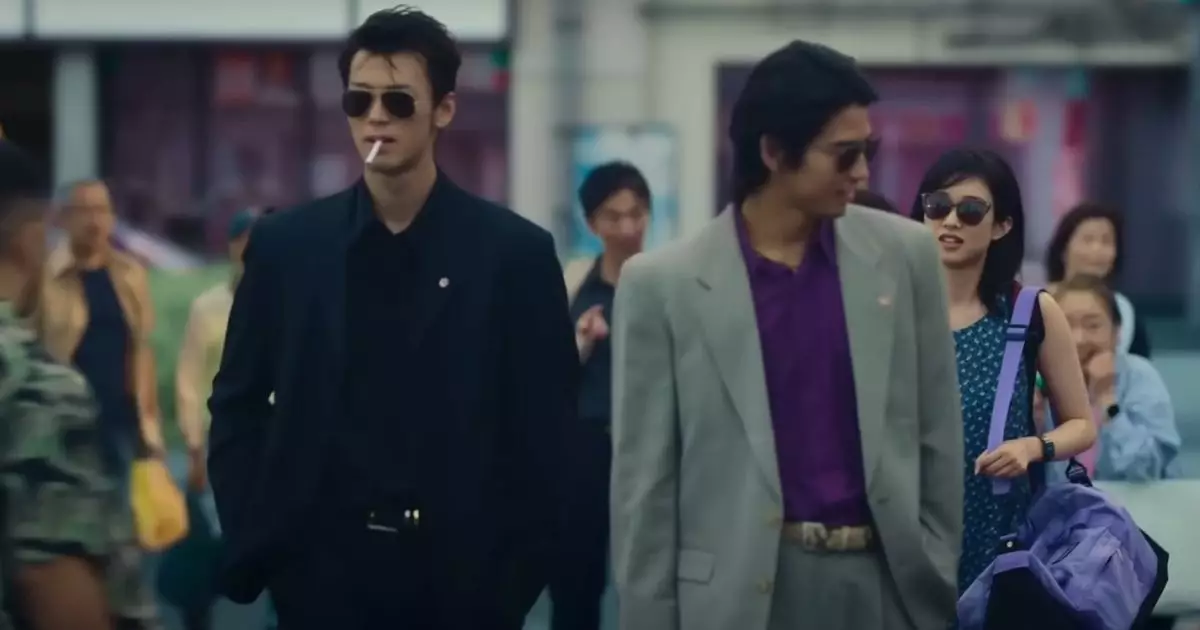The highly anticipated trailer for Amazon’s upcoming series “Like A Dragon: Yakuza” has generated both excitement and skepticism among fans of the iconic video game franchise. As a self-professed enthusiast of the Yakuza series, I find myself walking a tightrope between hope and apprehension. While the trailer hints at a serious and gritty narrative, it appears to stray from the quintessential humor and absurdity that have characterized the games. This divergence raises questions about whether the show can truly embody the spirit of its source material.
The visual tone evident in the trailer suggests that the series is leaning heavily into the darker elements of the Yakuza narrative. Viewers are introduced to a younger Kiryu witnessing a brutal fight in an arena, a moment that thrusts him into the chaotic world of organized crime. However, the absence of the franchise’s signature quirkiness—such as whimsical side quests involving eccentric characters—leaves a void. While this approach may resonate with audiences seeking a more traditional crime drama, it is crucial to consider whether the absence of these bizarre elements will rob the storytelling of its distinctive flair.
The focus on a gritty narrative is understandable, especially considering contemporary preferences in television. Audiences have gravitated toward strong, character-driven stories that tackle complex themes. Yet, the Yakuza games, while often deadly serious in their narratives, manage to juggle outrageousness and poignancy. This balance has become a hallmark of the franchise and is what many fans cherish. By framing events with a more subdued narrative angle, the show risks alienating those who yearn for the oddball charm that the series has offered.
The outline provided by Amazon highlights a blend of nostalgia and tension, depicting Kiryu’s early days with his friends and a looming heist at a local arcade—an event that places them against the backdrop of the Dojima Family’s power. However, this storyline diverges significantly from the original games, which weave complex narratives that connect multiple characters and arcs. Strong female leads and their interactions with Kiryu often played a vital role, and whether the show will honor this is uncertain.
Moreover, the trailer gives no indication of some hallmark Yakuza tropes, such as flamboyant side characters or absurd levity, which once led players into unforgettable escapades. Instead, the series appears to be aiming for a more visceral, action-driven approach. Without these elements, the narrative risks becoming just another crime story rather than a unique Yakuza saga.
Another critical factor that needs to be addressed is the representation of Kiryu himself. In the video games, players not only engage with Kiryu’s battles, but also partake in his moral dilemmas and emotional struggles. Kiryu is not just a tough fighter; he is a character imbued with compassion, honor, and an unwavering sense of duty towards his friends and community. If the show fails to capture the complexity of Kiryu’s character, it may miss the opportunity to delve into significant human stories.
Actors like Kiryu often experience an emotional journey throughout the series, with intertwined friendships and challenges that propel their development. The trailer serves a reminder of Kiryu’s internal conflicts and external pressures; however, whether the show can translate that into a compelling character arc remains to be seen.
While the newly released trailer for Amazon’s “Like A Dragon: Yakuza” hints at a serious crime saga, it simultaneously raises significant concerns among long-time fans. The absence of typical Yakuza absurdity, coupled with a focus on gritty realism, may dilute what makes the series so beloved. Yet, this does not eliminate hope for the possibilities of nuanced storytelling and character development.
Ultimately, the series will need to strike a delicate balance between fidelity to the source material and crafting its own narrative. If it can embrace the nuances of friendship, human struggles, and perhaps even the oddball moments that are emblematic of the Yakuza franchise, there might still be hope for capturing the franchise’s true spirit on screen. The conclusion may be predictable for those familiar with the games, but here’s to finding unexpected joy and intrigue in the journey.

